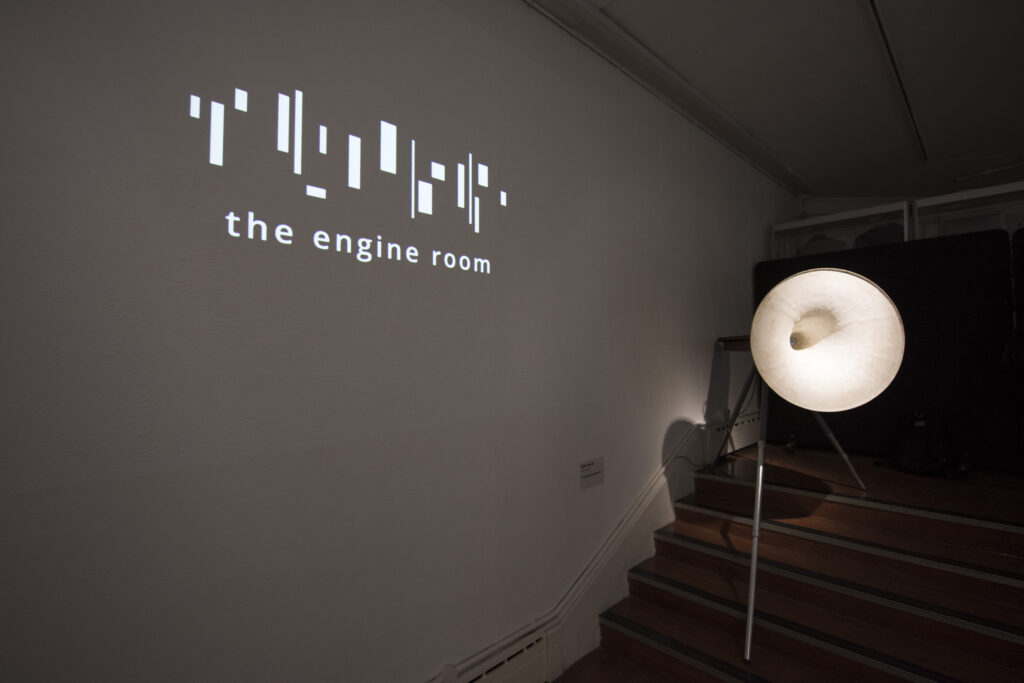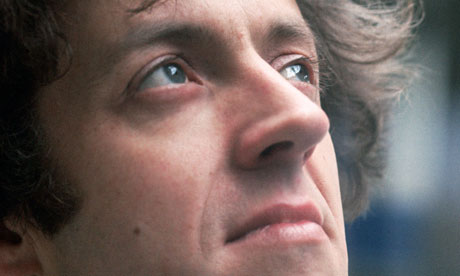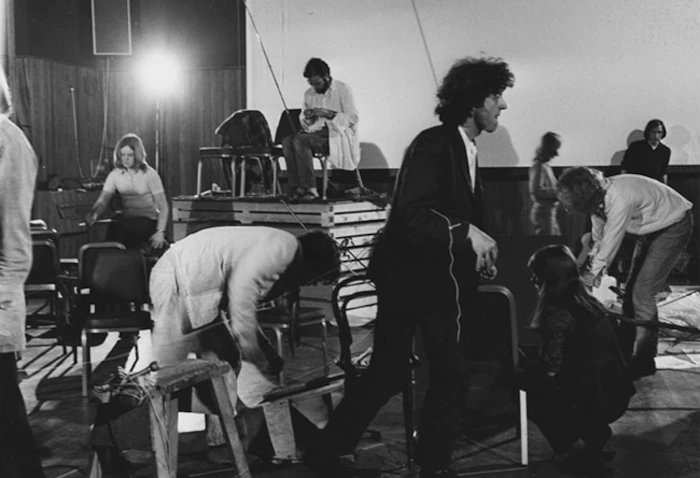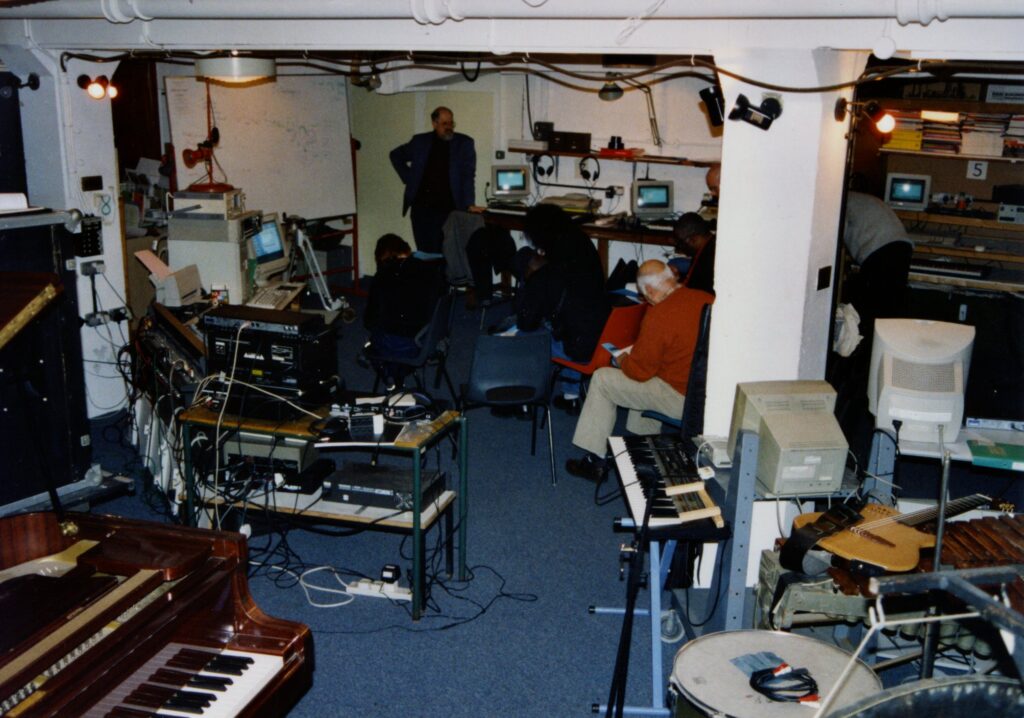About Us
Morley was the engine room of English Experimental Music
Howard Skempton

The Engine Room is a Morley College London initiative, continuing Morley’s legacy as a leading centre for electronic and experimental music and sound art.
The Engine Room is a platform for the exploration, education and promotion of experimental sound and music. It aims to engage with students, emerging and established artists to encourage and promote new work.
The Engine Room holds annual events, showcases and exhibitions alternating between a Morley student exhibition and a biennial international sound art competition and exhibition. Previous events have included a festival, conference, competitions, exhibitions, and performances. Courses are offered as part of Morley’s extensive portfolio of courses.
We are currently inviting entries for our next major event – The Engine Room 2023: International Sound Art Competition & Exhibition. The competition is open to emerging sound artists from around the world. Selected works will be eligible for a number of prizes, will be programmed at an accompanying exhibition at the Morley Gallery between April 24 – May 18, 2023.
Cornelius Cardew

Cornelius Cardew was a tutor at Morley College in the late 1960s and early 1970s, and left a lasting impact on the College as well as the wider British contemporary music scene, perhaps most notably through the Scratch Orchestra, which grew out of his Experimental Music Performance classes.
When Cardew began his experimental music class in Morley’s Holst Room in September 1968, he was the leading light of British avant-garde music: former assistant to Stockhausen, friend and promoter of the American experimentalists centred on John Cage, and a champion of improvisation and new forms of notation. He was able to pursue and promulgate his idiosyncratic ideas at Morley – something far less easy to do at the Royal Academy of Music where he also taught – since it lay outside the mainstream academic establishment and remained true to the pioneering principles of its 19th century founders. A ‘spirit of collaboration and an emphasis on doing something new’ is what characterised Cardew’s Morley class, according to one of its members.
The Scratch Orchestra

The Scratch Orchestra was founded in July 1969, growing out of a series of music composition classes held at Morley College London.
The Scratch Orchestra was a large and diverse group of performers, including trained and untrained musicians from various contexts in classical, jazz, free-improvised and rock music, as well as visual, mixed media and performance artists, who came together in 1969 and formed the central focus of experimental activity in English music for several years.
Scratch Orchestra was Cardew’s great experiment in collective music-making, and from the start all members were encouraged to participate on equal footing, regardless of skill or previous experience.
EMS: Electronic Music Studio/West Square Electronic Music Studio
It must be that the air is different south of the river – more open to new ideas and to challenging the old. To review tutors in electronic music in Morley College is to see a history of the field in Britain as a whole. A course at Daphne Oram’s personal studio in Kent first appeared in the prospectus of 1959 and continued for five years. This must be the first education institutional studio course in Britain by at least six years.
Simon Emmerson

Electronic Music Studio (aka West Square Electronic Music Studio c. 2005)
The space where the newly renovated basement of the Morley Gallery stands today was the home of the Electronic Music Studio (aka West Square Electronic Music Studio) under the director of the time Barry Anderson from 1983/84 until it was moved to its current location in the main building in 2006. In 2010 the studios were completely refurbished into the suite of purpose-built facilities we see today and in 2019 the College added two state-of-the-art radio studios on top of its former entrance, which we now know as Morley Radio.